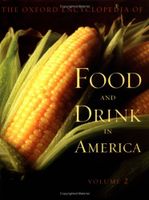Label
All
0
Clear all filters
🌷 Spring savings – save 25% on ckbk Premium Membership with code SPRING25
Freeganism
Appears in
Published 2004
Freeganism is the practice of feeding a household mostly from food collected by gleaning, dumpster diving, bartering, foraging, and recovering and slaughtering roadkill. While some households might carry these practices out of necessity, freegan groups describe it as a protest activity and an active rejection of the capitalist lifestyle. The word is purportedly derived from “free” and “veganism,” here used more as a suffix than as a specific indication of vegetarian lifestyle. While some freegans are also vegan, their main objective is to rescue food—and also nonfood items—that gets discarded because of leaks and inefficiencies in the food chain. Many scholars recognize freegans as an extremist fringe of the current food movement, a variety of political consumerism, sometimes linked to Schumacher’s “small is beautiful” ideas, and as a part of the larger anarchic movement. Anarchic groups, who also reclaim the right to squat in abandoned houses and pursue a lifestyle as detached as possible from capitalism, which they perceive as a corrupt, exploitative, and unjust society, frequently practice freeganism, but it would be incorrect to connect every dumpster diver to some form of political or social protest. Stuart warns that not all people who dumpster dive are motivated by political reasons, and many scavengers do it mostly out of necessity, both in the developed and developing countries. The freegans’ standpoint, on the other side, is that the amount of waste currently produced by the industrial food system is immoral, and individuals following this perspective aim at disenfranchising themselves from the system. They also point to environmental issues and resources conservation as the bases for their actions.
Become a Premium Member to access this page
Unlimited, ad-free access to hundreds of the world’s best cookbooks
Over 150,000 recipes with thousands more added every month
Recommended by leading chefs and food writers
Powerful search filters to match your tastes
Create collections and add reviews or private notes to any recipe
Swipe to browse each cookbook from cover-to-cover
Manage your subscription via the My Membership page
Best value
Part of
Advertisement
Related Recipes
-
-
-
-
Related Reference
-
-
-
-
Advertisement
The licensor does not allow printing of this title



